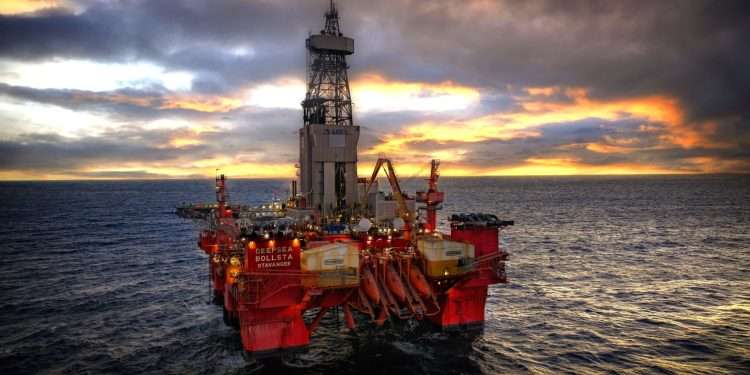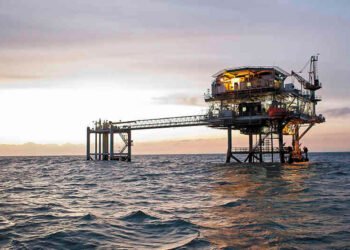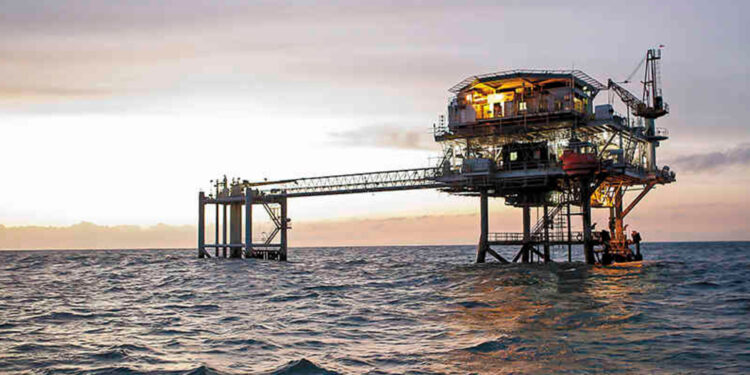Ghana’s local content policy in the upstream petroleum sector has been instrumental in fostering economic growth and development.
Since the discovery of oil in 2007, the country has implemented various measures aimed at maximizing the benefits of its hydrocarbon wealth while ensuring sustainable resource management. Mr. Kwaku Boateng, the Director of Local Content of the Ghana’s Petroleum Commission has emphasized that the local content policy in Ghana’s upstream petroleum sector has yielded significant benefits.
“The Petroleum Commission (PC) has so far awarded over $3. 6 billion worth of contracts to Indigenous Ghanaian Companies (IGCs).
“Again, about $8. 7 billion worth of contracts have been awarded to foreign companies while $6.3 billion went to Joint Ventures (JVs).”
Mr. Kwaku Boateng, Director of Local Content of Ghana Petroleum Commission
These achievements highlight the country’s growing commitment to boosting local participation in the oil and gas industry. These figures illustrate a structured distribution of contracts that prioritizes local involvement while maintaining opportunities for foreign investment and collaboration.
The upstream petroleum activities in Ghana have created more than 10,000 direct jobs, with additional opportunities emerging from allied industries, Mr. Boateng announced.
Highlighting the Petroleum Commission’s commitment to transparency and cooperation, Mr. Boateng noted that Ghana is dedicated to creating an enabling environment for investment in the upstream petroleum sector.
This is being achieved through the enactment of robust laws, regulations, and guidelines to govern the industry effectively.
“The commission will ensure transparency, cooperation, development, growth, and mutual benefits from the sector,” Mr. Boateng stated.
He added that investments in critical in-country infrastructure are key to enhancing the industry’s performance.
These investments include cementing units, waste management and thermal absorption plants, fabrication yards, hydraulic and engineering facilities, aviation hangars, bolt and nut manufacturing, coating plants, chemical blending, and the establishment of training centers for specialized trades.
Challenges Facing Local Content Development
Despite these achievements, Mr. Boateng highlighted several challenges that hinder the full realization of Ghana’s local content goals.
he cited the low level of activities, limited local capacities in technical scopes, lack of key infrastructure to propel local content development and the overlapping policies and regulations in other sectors.
“There is also the absence of a wider strategic planning in trade and industry to complement local content regulations, high cost of capital and fronting and weak manufacturing and industrial base,” he said.
He also pointed to Ghana’s weak manufacturing and industrial base, which limits the scope for local content development and economic diversification.
Promoting Local Content and Investment

In his presentation, titled “Building Value and Promoting Investment Through Local Content,” Mr. Boateng outlined strategic approaches to bolster investment and local content development in Ghana’s petroleum industry.
Mr. Boateng noted that government will intensify investment promotion to increase the level of activities hence local content development and activate incentive provisions under Regulation 25 of Legislative Instrument (LI) 2204 to encourage technological advancement in the sector.
“Promotion of local material substitutions and incentives for International Oil Companies (IOCs) to use Ghana as a hub to serve their operations in the sub-region, would also be pursued,” he added.
“We would also encourage in-country spending, empower local businesses through strategic alliances and partnerships, incubation of IGCs by larger companies and supplier development through subcontracting.”
Mr. Kwaku Boateng, Director of Local Content of Ghana Petroleum Commission
Furthermore, the commission aims to emphasize domestic value creation over mere ownership, focusing on access to financing, the establishment of a Local Content Fund, and the rehabilitation of critical infrastructure such as the Tema Shipyard.
Leveraging Local Content for Economic Development
Mr. Boateng described local content as an “enabler of transition” for economic growth and development. He emphasized the importance of maximizing national value creation along the petroleum value chain.
“The objective is to maximize national value creation along the petroleum value chain.
“Economic development must also increase Gross Domestic Product (GDP) through value retention, stimulate growth in non-core businesses, and ensure linkages and infrastructure development.”
Mr. Kwaku Boateng, Director of Local Content of Ghana Petroleum Commission
The Petroleum Commission is optimistic about the future of Ghana’s energy sector. Efforts to address the identified challenges and implement strategies for inclusive and sustainable growth are underway.
Mr. Boateng reiterated the commission’s commitment to creating an investment-friendly environment that benefits both local and international stakeholders.
READ ALSO: Martin Amidu Criticizes Political Exploitation of Bawku Conflict




















